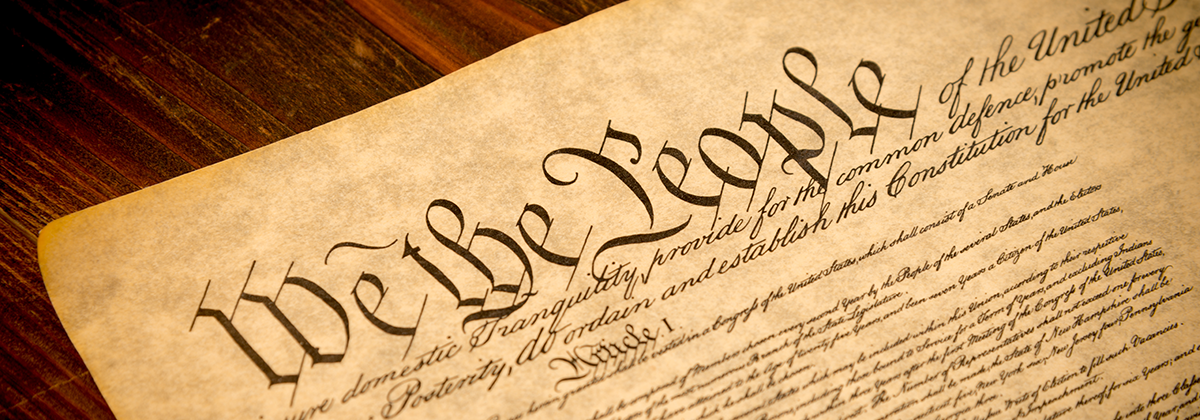The word “federalism” has been used a lot lately. Let’s be sure to understand federalism well because it is foundational to our U.S. Constitution and American system of government. Interestingly, federalism in the founding era meant being “friendly to the United States.” It refers to the sharing of power between the levels of national and state governments.
Federalism Balances Power and Safeguards Liberty
Here are seven key points to acquaint us with federalism’s importance and will help us grow in our understanding of the Constitutional Republic our Founders gave us:
Balance of Power—Federalism balances the national (aka federal) government’s power with the individual states’ power. An example of this might be a commercial with a caveat at the end saying, “Product not available in your state.” This means that the product is nationally approved, but the individual states may have certain reservations or restrictions on it.
Safeguarding Individual Liberty—The Framers of the Constitution knew humans’ lust for power. They designed our system of government so states could counterbalance federal power. When government is more local than nationally centralized, the people have more say in how they are governed.
Federalism’s Importance
Policy Experimentation—A good example of this aspect of federalism might be the legalization of certain drugs. If a few states try this policy, they can discover its benefits, drawbacks, and ugly aspects without subjecting the entire nation to experimentation. Federalism allows us to tailor policies to different areas of the country.
Political Participation—When policies are discussed locally, citizens are more likely to voice their opinions and have laws tailored to their needs. Sometimes, a “one size fits all” approach does not work in a country the size of the USA. Federalism, then, encourages the people’s participation.
Economic Benefits for the States—Federalism allows for healthy competition among the states. People may move to areas with lower taxes or better job markets.
Diverse Regional Needs- Different regions of the country have different resources, values, and needs. Federalism respects those differences. For example, states with shipping ports may have different needs than mountainous states.
Conflict Resolution- If states cannot resolve disputes, the national government may need to intervene. This flexibility works both ways in federalism. Perhaps a national government policy isn’t working, and the states can resolve the differences more easily according to their regions. An example of this might be forestry issues where the national government owns the land, but regional people would be better at managing forestry issues because they live on the terrain.
Conclusion
As you can see, federalism balances power, gives We the People more voice in government policies, brings government closer to home, and benefits us economically and individually. Thanks to the Framers of our Constitution, federalism grants us the opportunity for individual freedom, prosperity, and stability.
This is Common Sense Civics and Citizenship. 🇺🇸
Join the Conversation! https://www.facebook.com/commonsensecivics

